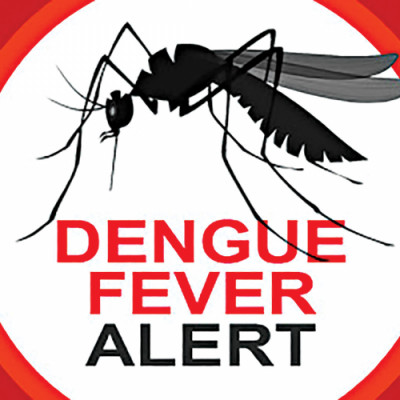Dengue fear creeping in amid Covid

With the onset of monsoon in the country creating suitable breeding conditions for Aedes mosquito larvae, the month of June has so far accounted for 59.5 percent of the dengue cases recorded this year.
The number of infected patients yesterday was 12. Aedes mosquitoes are carriers of the dengue and chikungunya viruses.
Experts warned that if authorities concerned and people of the country do not take necessary steps to destroy breeding sources, there is a danger that dengue cases may increase fast.
That would be even more dangerous than other years because health services in the country are already strained due to the coronavirus pandemic, they said.
According to the Directorate General of Health Services (DGHS), 247 patients have so far been infected with dengue virus since January 1, 12 of whom were infected yesterday.
Of the total people infected this year, 147 were infected in the first 23 days of June -- or 59.5 percent of the total infected.
Manzur Chowdhury, entomologist and former president of Zoological Society of Bangladesh, said the dengue situation is good so far, but if dengue patients increase by four to five times in June compared to the number in May (43), it will signal a sharp rise in infections. He said even moderate dengue infections will heighten the risk due to the pandemic.
Authorities will have to take necessary steps to raise awareness that Aedes breeds in clean water, and so people will have to clear water from all kinds of containers once a week, Manzur said.
June is a critical month for dengue as the number of dengue patients starts increasing from this month, he said.
If the trend of increasing dengue cases continues then it will be a cause for concern, he added.
Apart from the initiative from the city corporations and the government, every person will have to come forward to destroy all breeding sources of the Aedes mosquito, he said.
Prof Kabirul Bashar, an entomologist of Jahangirnagar University, said they did field work from JU this month in Dhaka and found substantial numbers of larvae in every positive container.
Bashar said they however found fewer Aedes larvae in under-construction buildings due to the drives of the two city corporations after the pre-monsoon survey of the DGHS.
City corporations will also have to inform people about the Aedes mosquitoes and have to encourage them to destroy all breeding sources, he said.
HM Nazmul Ahsan, associate professor at Shaheed Suhrawardy Medical College and Hospital, said if a person is infected with both dengue and Covid-19, the situation may turn critical. Doctors will also struggle to handle patients.
It is therefore very important to pay full attention to destroying all sources of Aedes mosquitoes, he said.
Chief Health Officer of Dhaka North City Corporation (DNCC) Brig Gen Md Zobaidur Rahman said since April they have been issuing letters to all government, semi-government, autonomous, private organisations and educational institutions to take necessary steps so that Aedes larvae do not get any suitable place to breed.
He said they also issued 1,700 text messages to owners of houses where Aedes larvae was detected last year, asking them to take necessary steps to destroy breeding sources or face stern action.
They also held a road show on May 22 in the presence of the LGRD minister, DNCC mayor, TV artists and local prominent persons to raise awareness among the people and did road shows simultaneously in all 10 zones of the DNCC.
Zobaidur said they also conducted combing operations in all the houses in DNCC areas to stop breeding of Aedes mosquitoes and took action against owners of establishments where larvae were found. The corporation will conduct the drive again and will also continue the awareness programme.
He said they are also conducting their regular anti-mosquito drives across the DNCC areas and also conducting a special anti-mosquito drive to different hospitals.
Md Abu Nasher, public relations officer and spokesperson of Dhaka South City Corporation (DSCC), said they are continuing their routine spraying of larvicide and adulticide.
Apart from this, they are conducting mobile court drives in government buildings, colonies and under-construction buildings and imposing fines if they find any dengue larvae there, he said.
"We are also conducting drives at different houses in the DSCC areas," he said.
Since April 1 this year, they visited 699 buildings and found mosquito larvae in 92.
"We have filed 92 cases and fined the [buildings'] owners Tk 13.58 lakh," Naser said.
Apart from the awareness campaign, he said they are also giving special attention to some areas as per the instruction of the DGHS, as density of Aedes mosquitoes was higher in those areas.


 For all latest news, follow The Daily Star's Google News channel.
For all latest news, follow The Daily Star's Google News channel. 








Comments